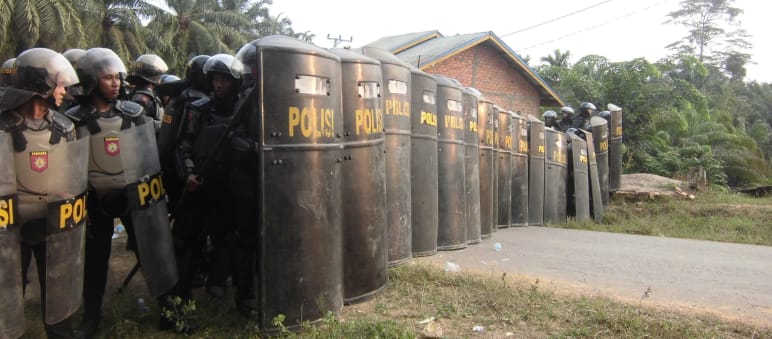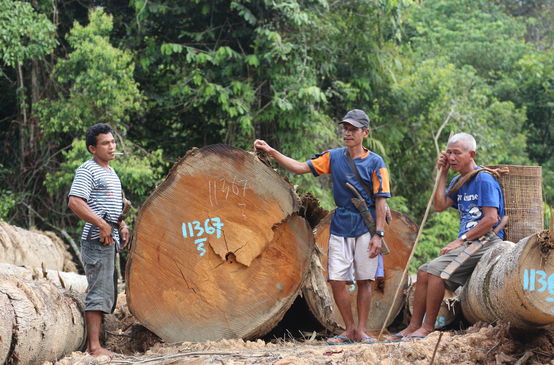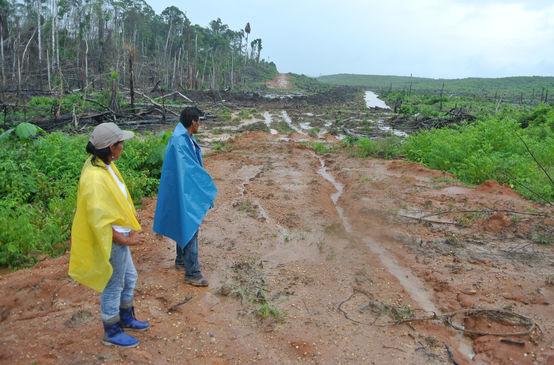
Indonesian police protects oil palms with guns drawn
Indonesia: Indonesian police is “protecting” oil palms with their weapons drawn, taking brutal action against the inhabitants of Sembuluh who want to preserve their Batu Gadur forest. So much for “sustainability”.
For more than twenty years, palm oil companies have been continually gnawing away at the forests around Lake Sembuluh in Central Kalimantan. Batu Gadur forest, the last rainforest in the midst of extensive plantations, has been a ray of hope in this grim picture. The forest belongs to the inhabitants of Sembuluh.
In March 2018, the plantation company PT Salonok Ladang Mas (SLM) started to clear the forest. Resistance by local people was able to prevent further destruction, however. The authorities, the company and the villagers agreed to put the clear cutting on hold until a lasting, mutually agreeable solution could be found. SLM withdrew its bulldozers in October 2018.
But on Saturday, May 4, 2019, they were back – this time under police protection. A cordon of armed riot police faced the villagers down. Officers wanted to drag Wardian, a farmer, into a car. This led to a riot and the leader of the police unit ordering his men to open fire. Fortunately, his subordinates did not obey the order to shoot. Villagers are said to have fled across the lake for fear of violent reprisals and imprisonment.
“It was unbelievably brutal,” noted Udin of the NGO Save our Borneo. “The police took a very tough stance against the people of Sembuluh. Conflicts over environmental degradation and land grabbing escalate when heavily armed security forces are deployed against citizens. People are seen as nothing more than interference factors in the expansion of the palm oil industry. They face threats and intimidation, and are ultimately criminalized.”
A line has clearly been crossed in Sembuluh.

URGENT: Please help us save Kinipan forest!
In Borneo’s Kinipan, the indigenous Dayak Tomun people are struggling to save their forest. SML, the company behind the loggers, wants their land for a palm oil plantation.

Support the fight of indigenous people against the palm oil industry
The indigenous Shipibo in the Peruvian Amazon are fighting to defend their rainforest against palm oil companies. Please help cover the Shipibo’s legal costs.

Palm oil
Palm oil is literally everywhere – in our foods, cosmetics, cleaning products and fuels. How could it come to this?